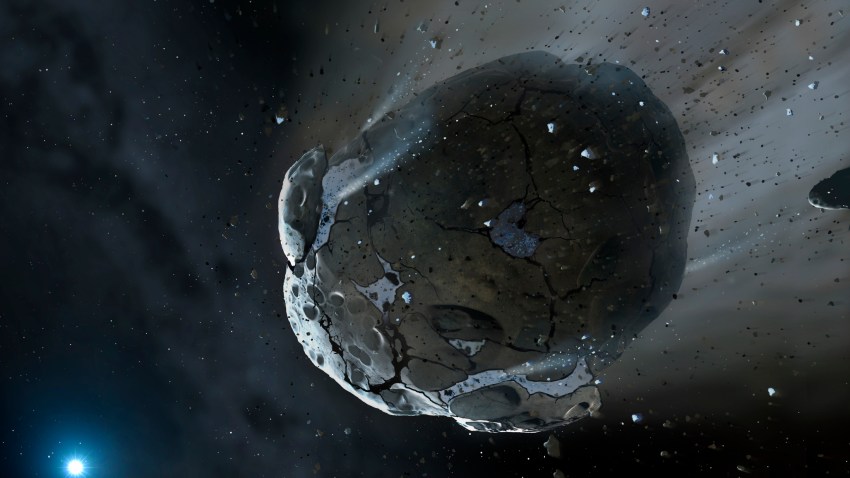Featured Post
- Get link
- X
- Other Apps
Current projections shows that when it flies by again in 2079, it'll be much closer, only about four times the distance from Earth to Moon.

Artwork showing an asteroid breaking up.
An asteroid discovered by researchers at Jet Propulsion Laboratory in Pasadena more than two decades ago will whiz past the Earth early Wednesday morning in what is considered a "close approach," but it won't get within about 3.9 million miles.
The asteroid, dubbed 1998 OR2, is roughly 1.5 miles wide, and JPL officials said they'll take advantage of the flyby to study the galactic traveler, which won't get this close again until 2079.
The asteroid was discovered by JPL's Near-Earth Asteroid Tracking program in July 1998. JPL officials said that although this trip past the Earth -- expected at 2:55 a.m. Wednesday -- will be millions of miles away, 1998 OR2 is still considered a "potentially hazardous asteroid.'' JPL officials noted that the asteroid can undergo slight changes in its path over the centuries that could potentially put it on a collision course with Earth.
That possibility is at least 200 years away, according to JPL. But since the possibility does exist, scientists will take a close look at the asteroid as it passes, using telescopes and ground-based radar, "as observations such as these will enable an even better long-term assessment of the hazard presented by this asteroid,'' according to JPL.
Wednesday morning's flyby will occur at roughly 16 times the distance between the Earth and Moon. Current projections shows that when it flies by again in 2079, it'll be much closer, only about four times the distance from Earth to Moon.
JPL officials called flybys of such large asteroids rare, occurring roughly every five years or so. The most recent one was in September 2017, when the 3-mile-wide asteroid Florence flew by at roughly 18 times the distance from the Earth to the Moon.
To ease the fears of people concerned about the Earth being struck by a large asteroid, JPL officials insisted it's "extremely unlikely" such an event will occur in the next century, since most such asteroids have already been "discovered, tracked and cataloged."
But JPL officials are continuing efforts "to discover all asteroids that could pose an impact hazard to Earth."
JPL is home to the Center for Near-Earth Object Studies, which is part of NASA's Planetary Defense Coordination Office.
Source: NBC
Comments